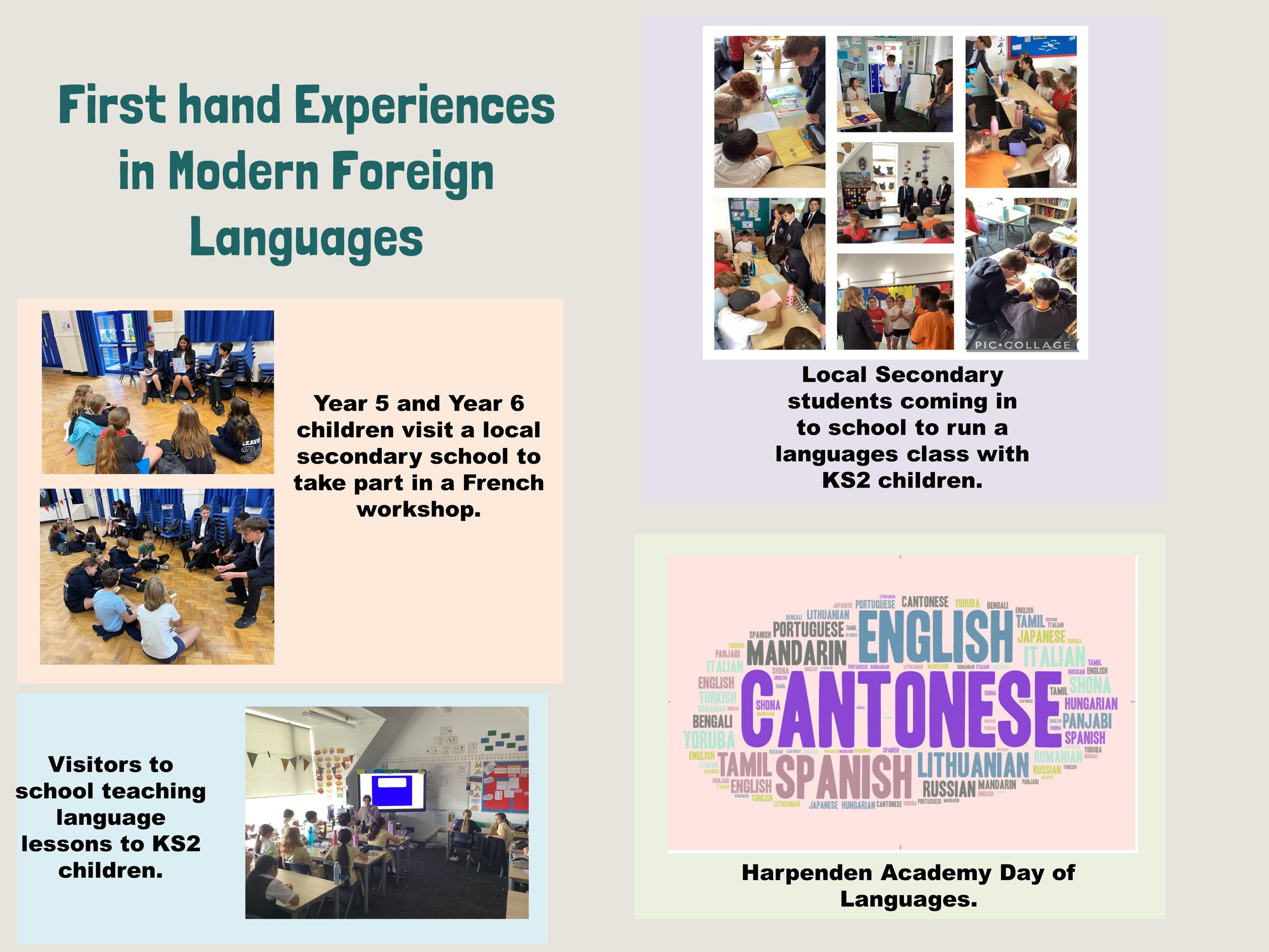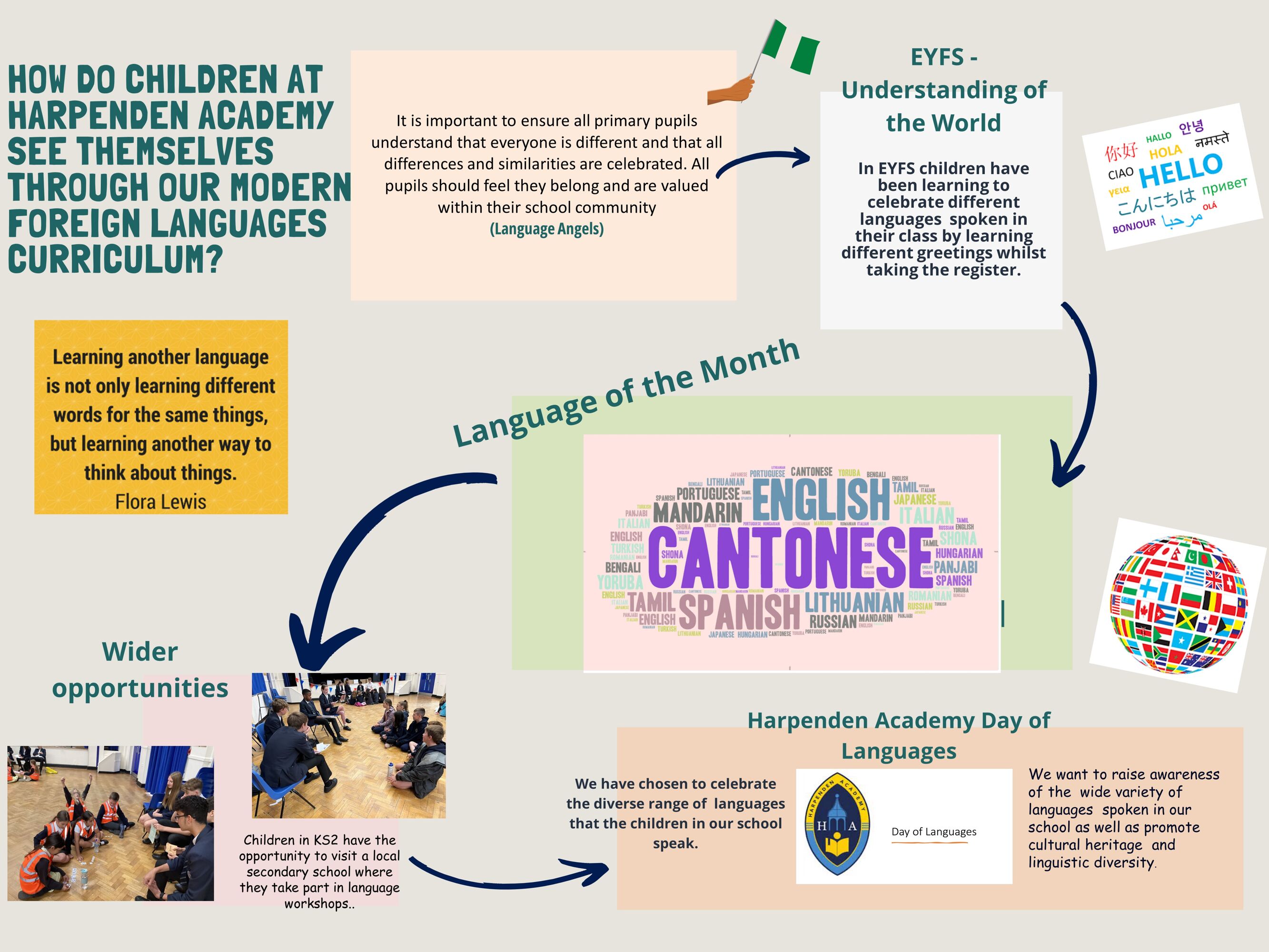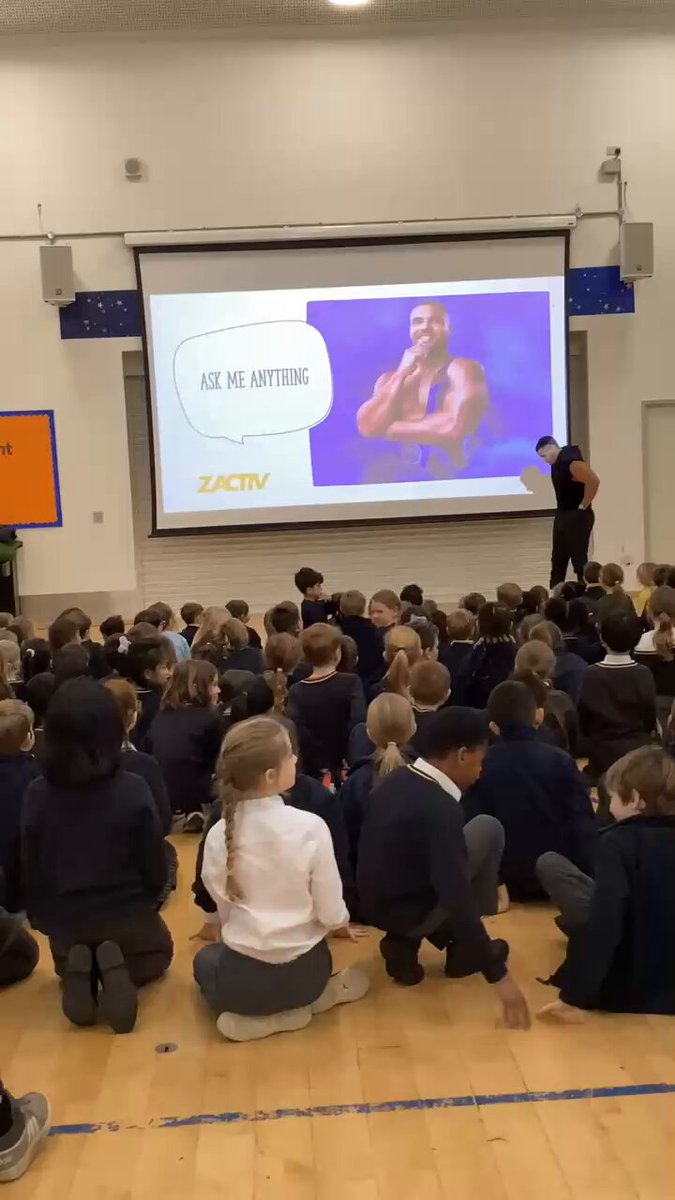Modern Foreign Languages
Spanish
‘A high-quality languages education should foster pupils’ curiosity and deepen their understanding of the world. The teaching should enable pupils to express their ideas and thoughts in another language and to understand and respond to its speakers, both in speech and in writing.’ (National Curriculum 2014 – Appendix A)
Learning a language enriches the curriculum helping to create enthusiastic learners and to develop positive attitudes to language learning throughout life. The skills, knowledge and understanding gained contribute to the development of children’s oracy and literacy and to their understanding of their own culture and those of others.
At Harpenden Academy, we feel that the earlier a child is exposed to a foreign language, the faster the language in question is acquired. We believe that the early acquisition of Spanish in KS2 will facilitate the learning of other foreign languages later in life. We aim to prepare children for the KS3 language curriculum to enable them to transfer confidently and successfully.
Our teaching of Spanish aims to foster children’s curiosity and help deepen their understanding of the world. A spiral curriculum has been chosen to allow an opportunity for children to gradually build on their skills. It enables children to express their ideas and thoughts in Spanish, providing opportunities for them to interact and communicate with others for practical purposes both in speech and in writing. The aim for Lower KS2 is that children acquire basic skills and understanding in Spanish with a strong emphasis placed on developing their Speaking and Listening ability. These will be further developed in Upper KS2 alongside Reading and Writing skills, gradually progressing to more complex language concepts and greater learner autonomy.
Through our Language Angels Spanish scheme, we aim to inspire pupils to develop a love of languages and to expand their horizons to other countries, cultures and people. We intend to help children grow into curious, confident and reflective language learners and to provide them with a foundation that will equip them for further language studies.
Our formal teaching of Spanish starts when the children are in KS2. However, as a school we want to ensure that children are developing a love of language from a young age and therefore we ensure that the children in EYFS and KS1 are introduced to a range of languages through greetings, songs and games.
At the end of each unit, our learning scheme, Language Angels, provides an assessment against which the children’s long-term learning can be assessed. This is broken down and covers the four schema of MFL: speaking, listening, reading and writing. This data is used alongside teacher judgement to inform end of year reports.

Oracy
First Hand Experiences

Belonging



























